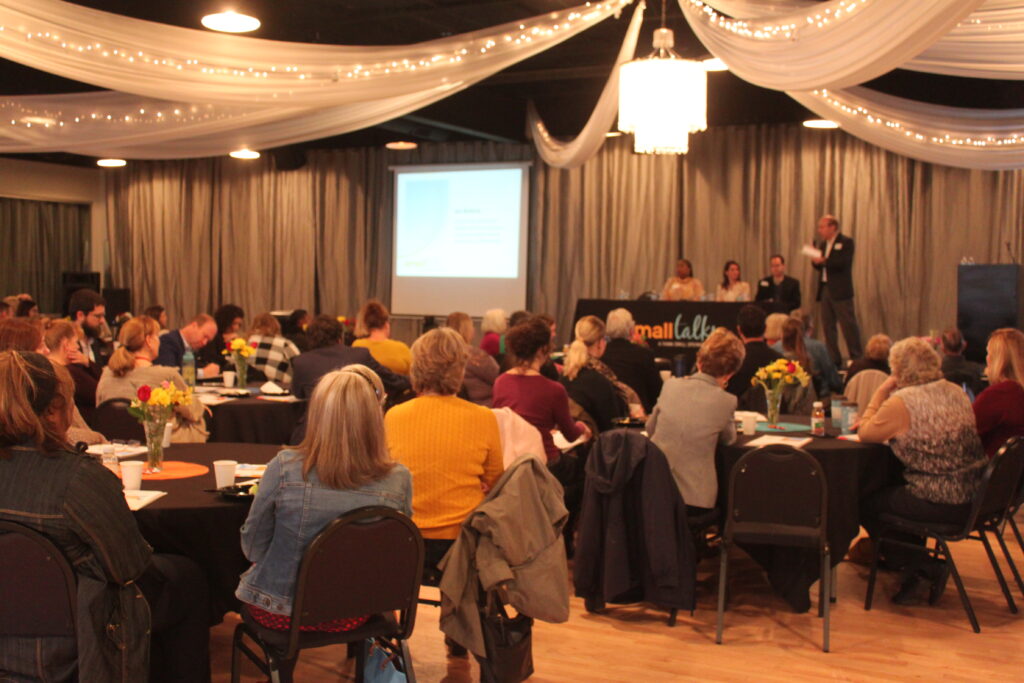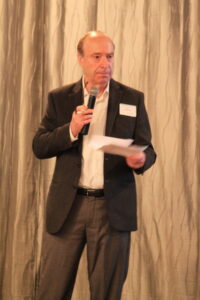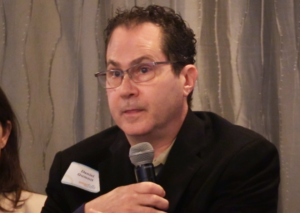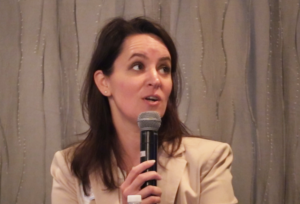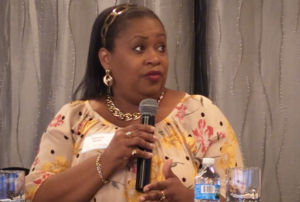Small Talks features leaders who share key insights on early childhood education and discuss innovative solutions to early learning issues in Minnesota.
Inadequate investment, scholarship caps, complicated funding streams, and low pay for child care providers. These were just some of the economic challenges facing families and early childhood educators that were discussed during the October 9th Small Talks event, a speaker series hosted by Think Small.
“I will argue that even though we haven’t solved it all, we’re still making amazing progress from an economic point of view,” said Art Rolnick, economist and senior fellow at the Humphrey School of Public Affairs.
More than 100 people attended Early Childhood Education: True Costs to Families and Early Child Care Educators at the Midpointe Event Center in St. Paul. Rolnick, who also serves as a Think Small board member, talked about the Minnesota Model of Early Learning and the research behind it. He explained that the keys to success are starting early (prenatal to five), engaging parents, requiring quality, and helping the most at-risk children first.
“It’s the best public return – the best investment we have out there,” he explained. “We’re showing it in the state of Minnesota and it’s now being replicated in a number of communities across the country. However, it’s critical we continue to improve.”
Rolnick said early learning scholarships serve roughly 8,000 kids in Minnesota, yet there are 35,000 children who need help and aren’t getting it. “Our ultimate objective is that the state will make a commitment to go from 70 million to 400 million so that every child at-risk child will have this program. We should settle for nothing less,” he said.
Panelists included Trinette Potts, Think Small’s Child Care Business Coordinator, Heidi Hagel Braid, Director of National Programs at First Children’s Finance, and Daniel Gumnit, CEO of People Serving People, the state’s largest and most comprehensive homeless shelter.
“We passionately believe that if we’re going to break the cycle of poverty and homelessness we need to focus on the youngest most vulnerable children in our community. Our biggest program investments, by a significant degree, are in early childhood development and parent engagement,” said Gumnit.
People Serving People operates an Early Childhood Development Center at their downtown shelter as well as the Center for Excellence Preschool and Learning Center in the Phillips neighborhood.
“What, you may ask, is the largest organization in our community that’s focused on family homelessness doing investing its biggest program dollars in early childhood development? It’s because that’s where we believe we’re going to get the greatest return on investment,” said Gumnit.
Another nonprofit, First Children’s Finance, provides loans and business -development assistance to high-quality child care businesses serving low- and moderate-income families.
“It’s our aim to make sure that child care businesses are sustainable and that there’s an adequate supply of child care available to families who need it,” said Hagel Braid. She described the child care business model as complicated. Families often look at the tuition charged every week and think providers are making a huge profit, but she says, you have to remember, at a center for example, somewhere between 65% to 75% of all expenses are labor.
“It’s worthy work. We’re not paying people well and we’re barely making it when we’re not paying them well,” she added.
Hagel Braid said family child care providers are working for less than minimum wage. By the time that you complete the operational hours of family child care, cleaning, and engaging in quality – lesson planning, training and professional development, it takes a lot of time.
“Family child care providers are working an average of 63 hours per week and when you do the math, there’s just not enough money coming in,” said Hagel Braid. “We are relying on individually owned businesses to carry the future of our economy – the children. We are asking family child care providers, teachers, and educators to make sure that the world is going to be okay in 25 or 30 years and we’re paying people peanuts to do it.”
When Think Small introduced its new child care business support program this year, Trinette Potts was hired to serve as a coordinator. ‘Build Your Own’ offers free individualized assistance in the start-up or expansion of either licensed family child care programs or centers.
“People who want to open a child care often don’t realize what goes into starting a program. It’s a business, and it’s that business side they may not understand,” said Potts.
With the help of coaches and other partners, she walks providers through the process of licensing, training, and finances. “We’re doing it because we want quality providers out there. We need more high-quality providers in the field and we want the public to know how important quality is,” said explained.
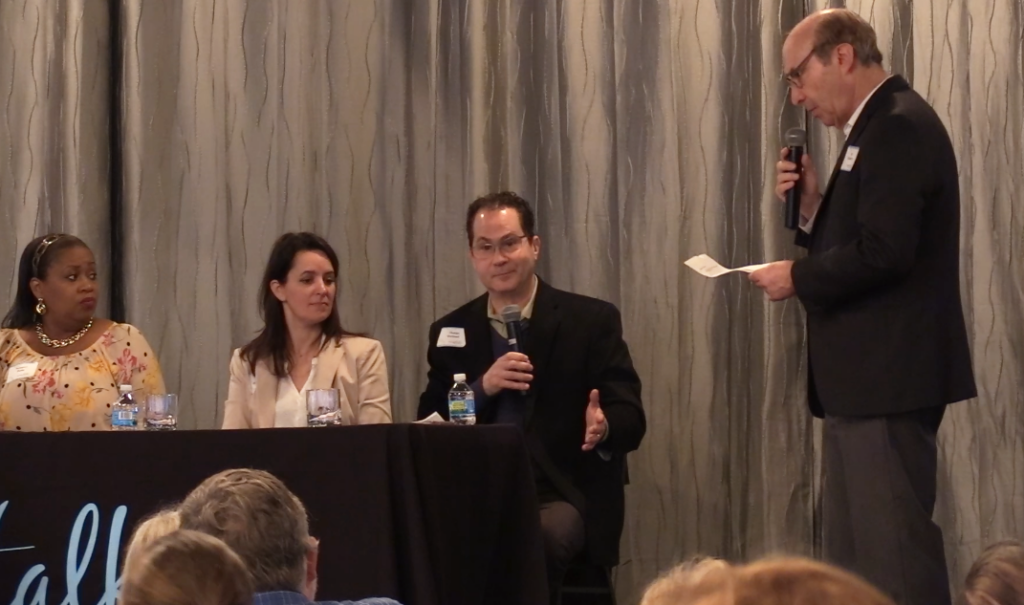
All panelists agree that there are numerous challenges, many of which could be addressed with generous funding.
“We’ll probably never be the highest paid profession, but the work is meaningful and important,” said Hagel Braid. “It’s all of our jobs to hold up early educators as economic developers.
“From a business point of view, if I told you I have an investment that will get you an 18-percent inflation-adjusted return, I can tell you that wouldn’t go unfunded very long,” said Rolnick. “It’s interesting that we have to fight to get funding for early learning.”
Link to related resources on the Think Small website.
Video of the entire Small Talks presentation.

